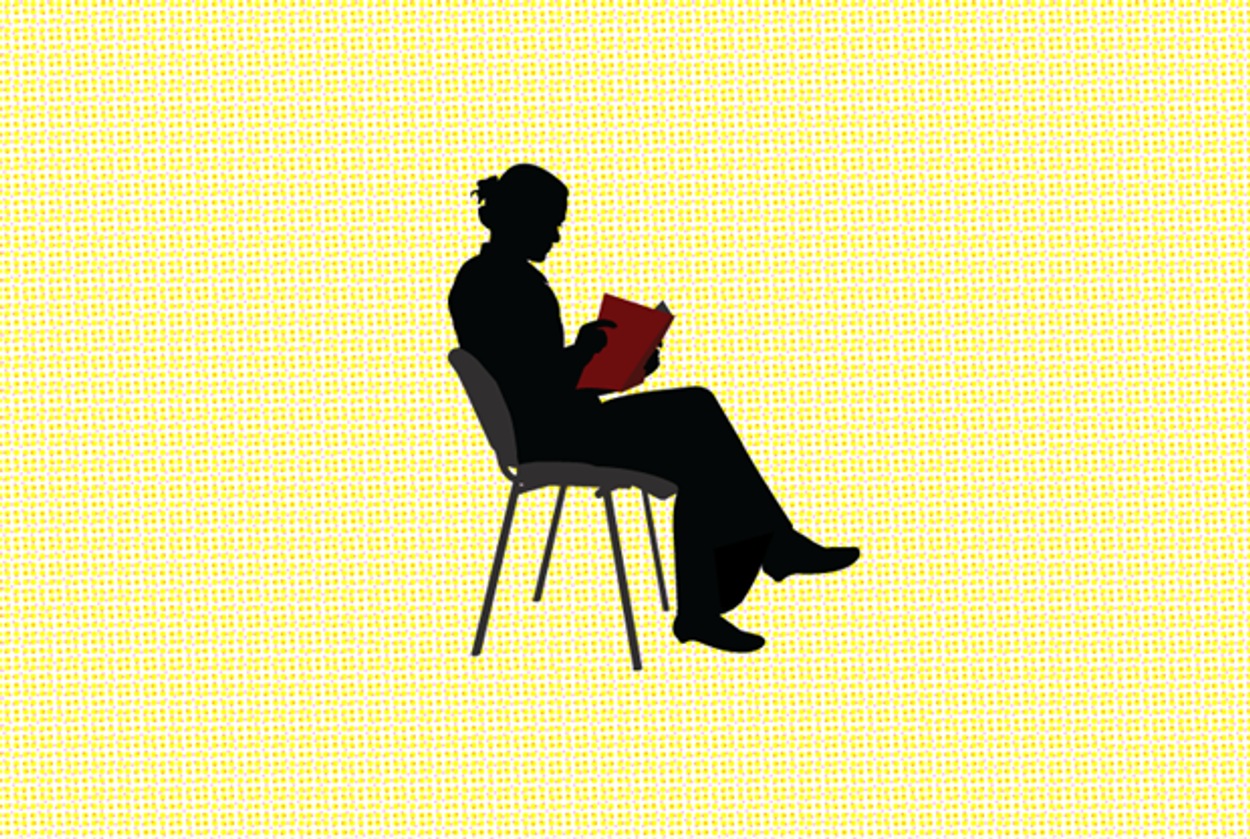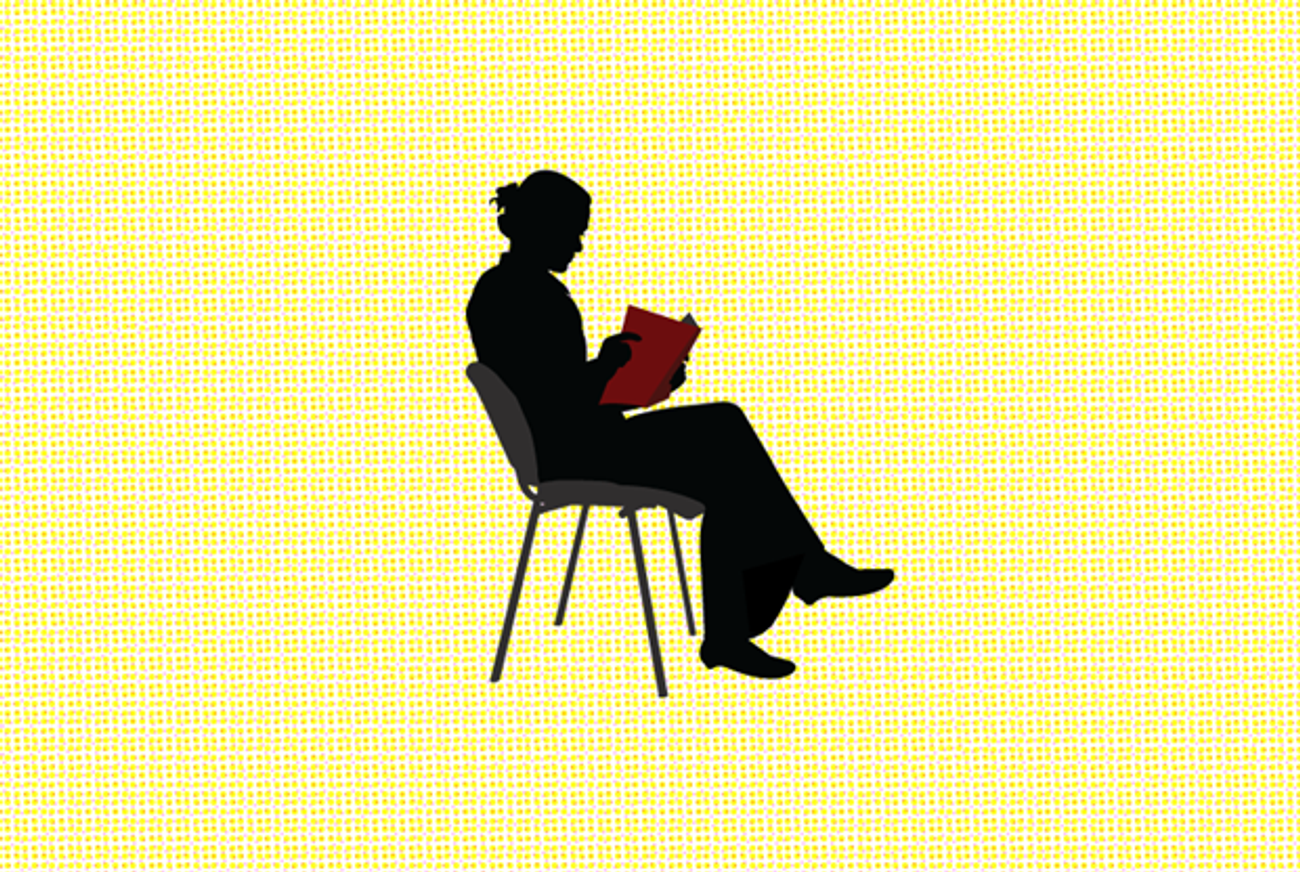Guarding the Dead
During my first shift sitting shmira with a body awaiting burial, I felt sad, guilty, anxious—and grateful




A young woman who belonged to my synagogue took her own life in December at age 26. She had served on the chesed committee—welcoming new members, visiting the sick, and comforting the bereaved—and now a call went out to the congregation to volunteer their time on her behalf, to sit shmira.
Shmira, which literally means guarding, is one of the prescribed Jewish rituals surrounding death. The group in charge of these customs is called the Chevra Kedisha (literally “holy group/community”), which attends to the preparation and protection of the body between death and burial—a time when it’s believed the soul hovers in a sort of liminal space. Someone must clean and dress the body, and someone must sit shmira at all times.
I learned all of this eight years before, when I converted to Judaism. At the time, it had brought a strange solace to me, knowing that a body never lies alone and must be handled with the utmost respect and care. But in the years since I had become a Jew, I had not had the chance to sit shmira myself.
I decided now was the time.
People were requested to sit for a two-hour shift, preferably in pairs. I checked online and found that all the slots were already filled except 7-9 p.m. My heart fluttered, and I grew nervous. I chided myself for feeling this way: I wouldn’t be handling the body, just sitting with her. I decided to check back in an hour. If no one had signed up by then, I told myself, I’d do it.
In the meantime, I looked up what one is supposed to do at shmira: There is a prescribed group of psalms to read, and my shul said other “appropriate” books were fine to bring as well. I went over to the long bookshelves in my apartment, allowing my fingertips to graze the bindings. I squinted, reading the titles. Was Orthodoxy Confronts Modernity appropriate? The Quest for Authenticity? I didn’t know. How about Moral Grandeur and Spiritual Audacity? What did I want people to read alongside my body, I wondered, when I die?
My eyes alighted on Alan Lew’s This Is Real and You Are Completely Unprepared, a spiritual meditation on preparing for the High Holidays. Lew, a rabbi who died of a heart attack in his 60s, was born Jewish but his spiritual journey led him to meditation and Eastern thought. After much searching, he returned to Judaism and became a rabbi, integrating Jewish tradition and meditation in profound ways. He was not afraid of confronting mortality: I remembered the book saying that Yom Kippur was a dress rehearsal for your own death. I pulled the book out. Then I kept searching and landed on The December Project, a series of conversations between the late Reb Zalman Schachter-Shalomi and a reporter, Sara Davidson, about the final phase of his life. I’d had the privilege of meeting Reb Zalman several times and, like so many, I respected him immensely. His reflections on death and mortality, published shortly before he died last summer, left a deep impression. This would be the second book I would take.
I checked back online. The 7-9 p.m. slot remained vacant. I signed up to take the shift, alone. I put on my most modest black dress and my black frum-lady hat and left with the two books under my arm.
I was greeted by the funeral-home director , who motioned solemnly to follow him down the stairs. The two shomrim from the previous time slot were sitting there quietly, waiting to be relieved.
One of the shomrim, a woman, stood. “Let me show you around,” she said somewhat nervously. It was her first time doing this, too.
There was a small reception area, which faced an elevator bank, where they had been sitting. To the right of the reception area, a sort of showroom of coffins; big, small, fancy, modest. My eyes landed immediately on a little kid-sized one. I shuddered. And there were shiny caskets with various plush interiors. These weren’t the austere pine boxes I pictured when I thought of a Jewish burial.
At the other end of the room was a heavy industrial door, out of place with the muted tones and soft light of the place.
“Are you OK?” the shomeret said. I must have seemed not OK.
“Sure,” I said. “It’s just very sad.” This was true, but I also felt anxious.
The woman slowly opened the metal door. Cold air hit my face as I peered in. We’d arrived where the bodies were kept. It was like Law & Order; the neat rows of closed lockers stretching uniformly down the hall.
“And this is … ” she said.
“Yeah, I understand.” It was about to be just me and this room.
In one of the traditions I grew up in—Greek Orthodoxy—the body is prominently displayed, both at the wake and funeral. I didn’t see her body, just the rows of closed lockers.
Much to my relief, as a Jew I wasn’t required to see the body or even sit directly next to it; to be a shomeret, I just had to remain on the same floor.
“You can read psalms or just be still, if you want,” she said, putting on a heavy wool coat. “That’s what I did.” And with that the two of them left.
This woman whom I would be guarding was younger than me. I could picture her face. I didn’t know if I’d ever spoken with her. A tragic death. I was severely anorexic for a period in my 20s and had perhaps my own near miss at the age at which she had killed herself. I’m now on solid ground, but sitting shmira for this woman I felt consciously grateful that I’d survived. It was, in large part, the kindness of strangers who had saved me from myself.
And with this gratitude, I also felt regret, sadness, and a little guilt. Why hadn’t I ever spoken to this young woman? Maybe I could have been there for her? Why hadn’t my husband and I had her over for a Shabbat meal? Becoming Jewish involves knowing what it is to be the stranger. How quickly I had forgotten what it is to be new in a community.
I sat where the previous shomrim had sat, noticing the giant clock staring me directly in the face. 7:02. It was so quiet. I couldn’t hear any noise. There’s something reassuring about the constant low rumble of Manhattan street noise. Maybe I’ll meditate, I thought, putting my hands into a classic meditation mudra. 7:04. No, that’s not right.
I imagined what it would be like to lie in one of the coffins. My mind jumped to a chapter in Reb Zalman’s life, not long before he died. He decided to “practice” his own death; having his body washed and prepared, as if he were dead; lying as if in a coffin. A friend of ours was one of the people who participated in it. It was a very Reb Zalman thing to do. My mind leapt to the Woody Allen line, which Reb Zalman quoted: “I’m not afraid to die—I just don’t want to be there when it happens.” But actually, Reb Zalman believed in confronting mortality as directly as one might imagine; he did, in some sense, want to be there when he died.
I’m freaking myself out. I’m going to read psalms, I decided.
7:13. Just nine minutes had passed?
I opened up the small worn book of psalms, searching for the correct one to begin with. I read in English rather than Hebrew, and hoped that would be OK.
The Lord is my shepherd; I shall not want.
He maketh me lie down in green pastures;
He leadeth me beside still waters.
He restoreth my soul;
He leadeth me in the paths of the righteous for his name’s sake
Yea, I walk through the valley of the shadow of death,
I will fear no evil: for thou art with me …
My eyes filled with tears. What was happening? I didn’t even know this woman. I dove back into the verse. How had I never noticed the beauty of these Psalms?
The elevator doors opened, startling me. It was the funeral director again, now with a middle-aged couple, who looked blankly at me, perhaps even beyond me. Was I supposed to say something? The director ushered them quickly by and into the coffin room. The door closed softly behind. I realized that these were her parents.
I heard muffled cries, and I tried to refocus on the poetry before me. These poor people. I returned to the words.
The three emerged from the other room.
“I’ll explain it all,” the funeral director said, as they made their way up the stairs.
“But what is she doing?” the mother asked.
“She’s a very religious lady and she’s one of the people who comes here to sit and attend. They read Torah.”
It took a moment to realize that I was the “religious lady.” The “me” of a decade ago, that reckless 26-year-old, wouldn’t have believed it. But here I was now, immersed in ancient verses, praying for the hovering soul of a 26-year-old who hadn’t escaped death as I had. I had a moment of real intensity. I wept: for her, for the beauty of psalms, and for the strangers who do mitzvot. How lucky I was to be alive, what a gift it is; this messy, painful, beautiful, brutal, chaotic, perfectly ordered world.
Just after 9 p.m., I emerged at street level; disoriented by the blaring sirens, honking taxis, the cacophonous chorus of New York City. I walked up Columbus Avenue, happy for the cold air. In the distance, I heard chanting. The whole shmira experience had me a little dazed. The voices grew closer. No, I wasn’t imagining this. They were people yelling and they were getting closer.
“I can’t breathe! I can’t breathe! I can’t breathe!” the protesters chanted, now just a block behind me. A different kind of death commemoration.
I stopped and waited on the sidewalk, pulling my jacket tight against the wind. Another mitzvah had found me. I was grateful to be alive, grateful to be part of Jewish tradition. The crowd slowly made its way up the avenue. I joined the throng and walked home.
Elizabeth Savage is a personal organizer and writer in New York City. Follow her on Twitter @savageorganizer.